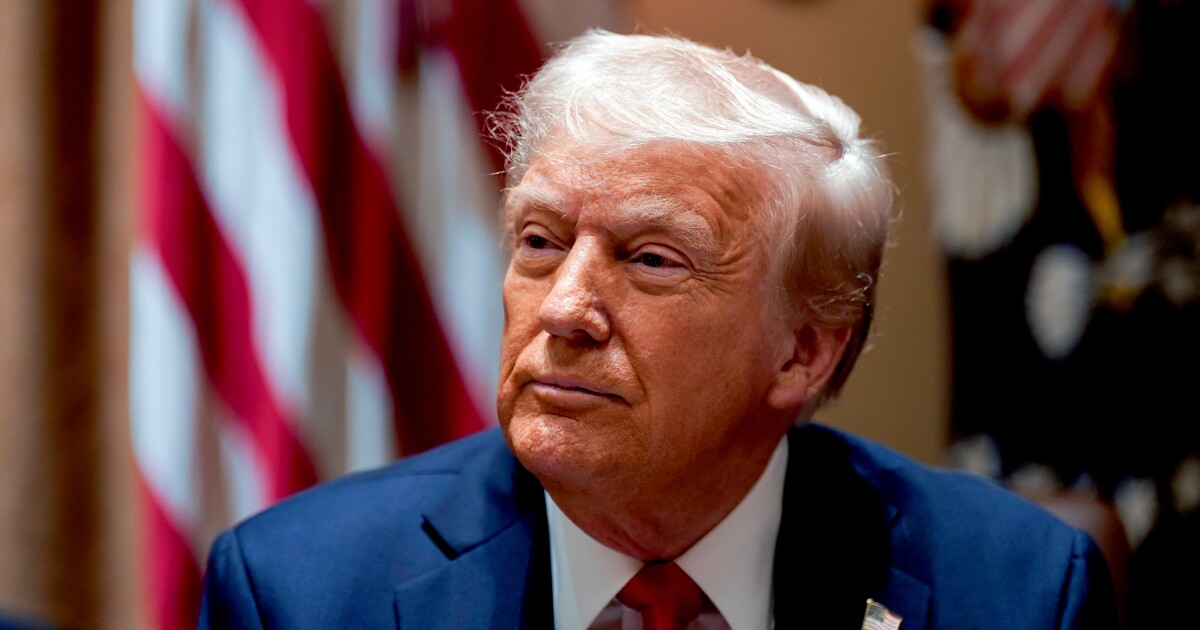
Tariff
In a report released Tuesday, the IMF revised its expectations for U.S. gross domestic product growth down from 2.7% to 1.8% for 2025. It also urged the Federal Reserve and other central banks to stand ready to take emergency steps to support lending in the case of a potential downturn.
"High uncertainty about the economic outlook and financial market volatility puts a premium on robust prudential policies to safeguard financial stability," the organization's latest World Economic Outlook report notes. "Jurisdictions experiencing financial market stress should release available macroprudential buffers to support the provision of credit to the economy and avoid a broad tightening of financial conditions and cascades of business failures and bankruptcies."
The multinational organization also revised its inflation expectations for the U.S. from roughly 3% in 2025 to 4%, exceeding its forecasted uptick of 0.4% for the broader pool of "advanced economies."
The IMF report, released ahead of its annual spring meeting in Washington, D.C. this week, focused heavily on the impact of the budding global trade war sparked by the
It focused heavily on the interplay between this new policy environment, persistently high inflation around the world and monetary policymaking. Specifically, it noted that central banks that have already lowered interest rates in response to economic slowdowns in the months leading up to the tariff announcement could have less
"In economies already operating at or close to potential and facing potential inflationary pressures, including those from new trade policies and exchange rate movements, there is less leeway for central banks to 'look through' new negative supply shocks," the report states.
The report acknowledges that the outlook, both for the U.S. and the rest of the world, could change dramatically depending on what new trade agreements are reached during the Trump administration's 90-day pause on so-called reciprocal tariffs. But, in the meantime, the report urges central banks to maintain policy flexibility.
Specifically, it recommends that "future cuts to the policy rate should remain contingent on evidence that inflation is heading decisively back toward target." It also suggests that central banks engage in "gradual" interest rate reductions if labor markets soften or economic growth weaken as inflation cools.
The guidance comes in stark contrast to the preferences expressed by the White House. In a social media post yesterday, Trump called on the Fed to implement "preemptive cuts" to interest rates, arguing that costs have been trending down to such an extent that there "can almost be no inflation."
Fed officials have favored a
The next Federal Open Market Committee meeting will be held on May 6 and 7.
The IMF report also warns of financial system vulnerabilities that can arise in conjunction with monetary policy adjustments, stating that it is "crucial to strike a balance between maintaining stable inflation expectations and ensuring that financial stability is not compromised, particularly amid financial market volatility."
Overall, careful observers of the international organization say the report paints a bleak picture for both the economy and the banking system.
Eric LeCompte, executive director of the globally active religious development group Jubilee USA Network, said the report should be taken as a warning to U.S. policymakers.
"The IMF is asserting we are facing severe risks in the financial system due to concerns with the banking system, possible stock declines and countries having unsustainable debts," LeCompte said in a written statement. "The news of these IMF meetings is simple: unless we start to address major risks to the financial system, our economy will get much worse."



